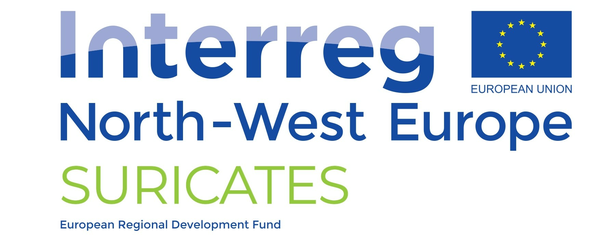
Context and issues
Environmental protection and the implementation of measures is no longer an option, as climate change and social pressure call for the search for tools and solutions to conserve and deploy activities. Today only 1% of dredged marine sediments are reused. The European Suricates project aims to increase the reuse of these sediments to combat the risks of flooding and erosion.
Project budget: EUR 8.01 million
Project duration: 6 years (2017-2023)
Project leader: University of Lille, France
Mains objectives
-
Find solutions for authorities, erosion experts, port and waterway managers, to further reuse and revalue sediments from their ports, etc.
-
Implement tools and techniques to account for the impacts territorially,
-
Test the solutions deployed on concrete cases,
-
Setting up a guide to reinforce and regenerate banks and beaches with sediments.
Partners
The partners of the European project Suricates : Université de Lille, France - Munster Technical University (MTU), Ireland - Deltares, Netherlands - University of Strathclyde, Grande Bretagne - Port de Rotterdam, Netherlands - University College Cork (UCC), Ireland - IXSANE, France - Bureau de Recherches Géologiques et Minières (BRGM), France - Scottish Canals, Great Bretain - Association pour la Recherche et le Développement des Méthodes et Processus Industriels (ARMINES), France - IMT (L'École nationale supérieure Mines-Télécom ) Nord-Europe, France - Syndicat mixte de portage du SAGE Rance Frémur (EPTB Rance Frémur), France.

Pilot sites
The European Suricates project has pilot sites in North West Europe, the Atlantic, the North Sea and the English Channel:
-
Port of Rotterdam (Netherlands)
-
Scottish Canals (Scotland, Great Britain)
-
La Hisse (Brittany, France)
Our Network
To find out more about sediment reclamation and flood and erosion risk control, you can visit our network websites:
Sed Net (European network aimed at incorporating sediment issues and knowledge into European strategies to support the achievement of a good environmental status and to develop new tools for sediment management)
SEDILAB (Centre de ressource sur la valorisation des sédiments de dragage)
CEDA (Resource centre for the recovery of dredged sediments)
European Circular Economy Stakeholder Platform
PIANC (The World Association for Waterborn Transport Infrastructure)




